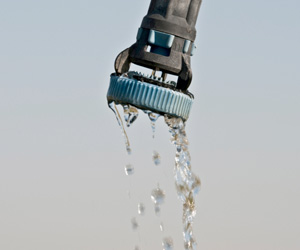 Jan. 28, 2014 – A home insurer scored a win today as the Wisconsin Supreme Court split 3-3 in a case involving water damage, products liability, and the “economic loss doctrine.” Without a majority, a lower appeals court ruling on the issue controls.
Jan. 28, 2014 – A home insurer scored a win today as the Wisconsin Supreme Court split 3-3 in a case involving water damage, products liability, and the “economic loss doctrine.” Without a majority, a lower appeals court ruling on the issue controls.
In December 2012, a three-judge panel for the District II Wisconsin Court of Appeals ruled that the economic loss doctrine did not bar a lawsuit by a home insurer against a water softener manufacturer. The insurance company said the appliance was defective.
State Farm Fire and Casualty Company insured the home of Larry Krueger. After two years in operation, Krueger’s water softener failed, causing $45,000 in water damages.
State Farm sued Hague Quality Water International, the water softener maker, alleging negligence and products liability. The circuit court dismissed the case in favor of Hague Quality Water, concluding that the economic loss doctrine barred the lawsuit.
In State Farm Fire and Casualty Co. v. Hague Quality Water International, 2012AP392 (Dec. 12, 2012), the appeals court reversed. This decision is now affirmed, as the supreme court split 3-3 (Justice David Prosser did not participate in the case).
Wisconsin courts employ the economic loss doctrine, the appeals court explained, “to bar the recovery of purely economic losses in consumer transactions through tort remedies where the only damage is to the product purchased by the consumer.”
But the doctrine does not bar tort actions for damages to “other property” caused by product defects, the panel noted, if the plaintiff survives two specific tests.
The first is the “integrated system” test. “If the damaged property is part of an integrated system with a defective product, any damage to that property is considered to be damage to the product itself” and tort claims are barred, the panel explained.
In this case, however, the damaged drywall, flooring, and woodwork in the home were not part of an “integrated system” with the water softener, the appeals court ruled.
Under a second test, the “disappointed expectations” test, tort-based claims of product failure are barred if the product is expected to interact with other property and the product merely failed to meet the buyer’s expectations of quality.
For instance, a homeowner who bought treated windows “that eventually led to rot not only in themselves but also in surrounding siding could not sue in tort as the claims were due to the disappointment that the windows did not perform as expected in preventing rot,” wrote Judge Paul Reilly for the panel.
Here though, Krueger’s water softener was not purchased to prevent water leaks and damage to other property. It was purchased to soften the home’s water.
“The drywall, flooring, and woodwork were not damaged by a failure of the water softener to soften water but by a defect independent of the water softener’s function of softening water,” Judge Reilly wrote.
The panel also rejected Hague Quality’s argument that reasonable purchasers of water softeners should foresee a risk of water leakage and thus cannot recover in tort.
Chief Justice Shirley Abrahamson, and Justices Ann Walsh Bradley and N. Patrick Crooks would affirm the appeals court ruling in favor of State Farm. Justices Patience Roggensack, Michael Gableman, and Annette Ziegler would reverse.
